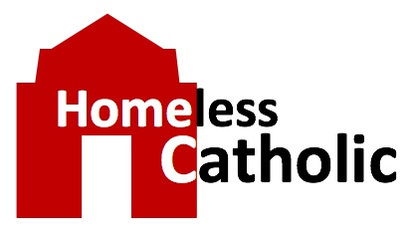Birthday for every generation
Few people have their birthdays remembered beyond a generation, except maybe in family histories. Fewer still have their births celebrated over an extended period of time.
In each and every case where a birth is remembered, it is not for the birth itself, but for the life which was subsequently lived.
Unless we're talking about Jesus, that is.
Image by falco
Reflection - More
By Steve Hall
https://bible.usccb.org/bible/readings/010122.cfm
Numbers 6:22-27
Luke 2:16-21
A child was born a few years ago. We don’t know for sure either the year or the day of his birth. And still we celebrate. In fact, the day is celebrated by many who know little or nothing about him. Since the original choice of the day for these festivities was influenced by pagan worship, I suppose it is proper that we allow the pagans of today to engage in the merriment as well. Nevertheless, it is also proper that we should question why we who focus on his birth celebrate at all.
Few people have their birthdays remembered beyond a generation, except maybe in family histories. Fewer still have their births celebrated over an extended period of time. In each and every case where a birth is remembered, it is not for the birth itself, but for the life which was subsequently lived.
The life that followed after that Bethlehem birth was not the life of a Ghandi, a Buddha or a Confucius. Although his teachings were phrased in a memorable way, most were not substantially new in the Judaic religion. Many who acknowledge him as a great teacher would concede little more than that. But there was more than that; that ‘more’ is exposed in the very name we give the day we celebrate his birth.
“Christmas" is a shortened form of "Christ's mass." The word is recorded as Crīstesmæsse in 1038 and Cristes-messe in 1131. Crīst (genitive Crīstes) is from Greek Khrīstos (Χριστός), a translation of Hebrew Māšîaḥ (מָשִׁיחַ), "Messiah," meaning "anointed;" and mæsse is from Latin missa, the celebration of the Eucharist. (This explanation is from Wikipedia.) As meaningful as the connection is, it doesn’t go far enough in expounding on the riches contained within. Yes, ‘Christ,’ ‘Khristos,’ ‘Messiah,’ and Anointed’ all mean the same thing; and all refer to the same person: Jesus of Nazareth. But the identification of ‘mas’ with ‘Mass’ is mineralized when we confine it’s fullness to the single word: ‘Eucharist’ without elaborating on the riches that one word contains.
Thanksgiving and Sacrifice are commonly associated with the Mass. contained within these two words are more detailed and expressive meanings: Surrender to the will of the Father, Crucifixion, Resurrection, Salvation, Eternal Life. This is the culmination of Jesus’ life. This is the reason we celebrate his birth. Without these, Christmas is diminished. It reverts to the pagan celebration it once was. It becomes ‘Winter Holiday’ or ‘Solstice Festivities.’ It becomes a mere cultural carol about love and family and togetherness. It descends to the level of being ‘the most wonderful time of the [human] year’ when the sacrifice of our Incarnate God is forgotten.
One of the most memorable descriptions of the presentation of the Jesus/Disciple relationship is presented in Mark’s Gospel. Essentially it resolves to the statement: We were disciples of this man who turned out to be God. It is interesting that Mark’s Gospel is sometimes described as a passion account with an extended introduction.
Traditionally, the Christmas season does not end until the feast of the Epiphany; so we’ve got a few more days to consider what belief is at our core as we recall the birth of that child born so long ago.
May God have pity on us and bless us;
may he let his face shine upon us.
So may your way be known upon earth;
among all nations, your salvation.
May the nations be glad and exult
because you rule the peoples in equity;
the nations on the earth you guide.
May the peoples praise you, O God;
may all the peoples praise you!
May God bless us,
and may all the ends of the earth fear him!
(Psalm 67)

